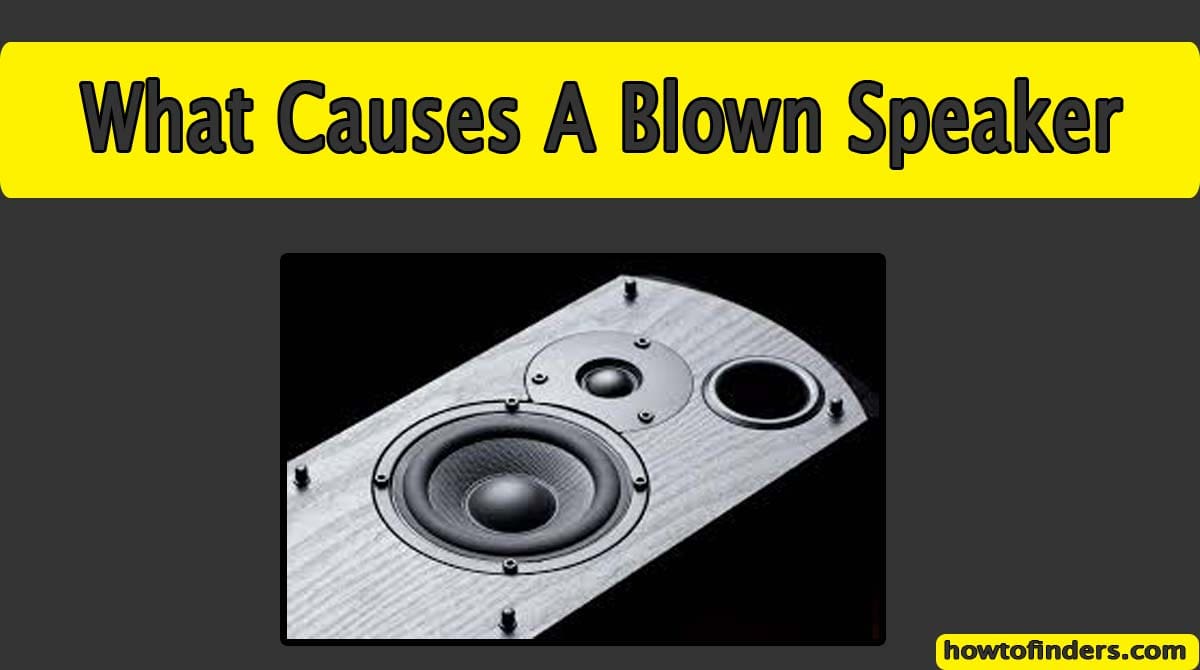You can use active speakers, passive speakers, stage monitors, subwoofers, etc. Speakers we use in PA systems and audio systems come in different dimensions.
It is really annoying to find out a speaker that once performed amazingly well has been blown. We need to understand how a speaker works.
To know if your speakers are blown you need to understand the reason behind your speaker being blown out. This will help you to fix it on your own and you can determine what to do about it.
What Does a Blown Speaker Mean
Most of the people around us use speakers and subwoofers in daily life. A blown speaker is one that doesn’t work right or doesn’t perform at all.
Sometimes, the speaker sounds unpleasant or goes silent, but suffice it to say that a blown speaker makes either a bad sound or no sound.

How to Know if Your Speaker is Blown
Probably you have some indications that your speaker has some problem. There is a possibility that it is blown out or has a problem with the power amplification stage.
We try to sort it out and give you some professional guidance to check and fix your blown speaker.
First and foremost, without getting overly technical, let’s call it a blown-out speaker if:
- Makes no sound at all
- You may find the speaker cone is physically torn
- High levels of audible distortion
- Limited frequency response (especially in multi-driver designs)
- Low levels of sound
- Intermittent sound
- High noise levels
- Will not turn on (active speakers)
What Causes a Blown Speaker
Here we talk about what are the exact causes of this problem.
- An Electrical failure is caused by applying too much power to the speaker’s voice coil
- Constant over-powering results in “burned” voice coils
- Blasting it with too much power for too long
- The direction and amplitude of the electrical current are translated into speaker movement that produces sound
- A byproduct of this electrical current is the dissipation of heat from the voice coil
- Amplification
- Volume controls or treble/bass boost controls
Burnt or Melted Voice Coils
Heat is generally scattered by the conductive element of the speaker driver. Too much heat will effectively melt the coil into a single mass or even weld the coil to the magnet.
This renders the speaker incapable of accurately reproducing the audio signal or producing sound at all in the worst cases.
Blown Fuse or Loose Wires
Most of the speakers have electrical fuses as a way to protect them from speaker blow-out. Replacing this fuse can help the speaker back to life.
Loose wires can also lead to speaker burn-out in the form of distortion, crackling, and popping.
How to Fix a Blown Speaker
The above mentioned are the causes of your speaker being blown out. You can check and find out the reason easily. Here in this section, we discuss how to fix a blown speaker.
- If your cone has ripped or separated from the fabric surrounding
- Use silicon rubber gel to glue it back together. It is important to use silicone because it’s flexible
- This gel comes in tubes, and you can buy it from any hardware store
- Tace the wiring all the way back to the amplifier and see if any have wiggled loose
- Keeping a safe listening volume is one way to avoid speaker blow-out
- You need to control the Volume, treble/bass boost controls in a good manner
Also Read: 8 Solutions For Pioneer VSX 522 Having No Sound
Final Words
In this detailed article, we described the reasons and causes of a Blown Speaker. You can figure out the reason behind this problem easily by reading this article.
This article is a proper guide to know about the speaker being blown out and how to fix it. Avoid all these above-mentioned causes to keep your speaker in good working condition.
Hopefully, you are happy to read this article and this may help you to know about the causes of a Blown Speaker.